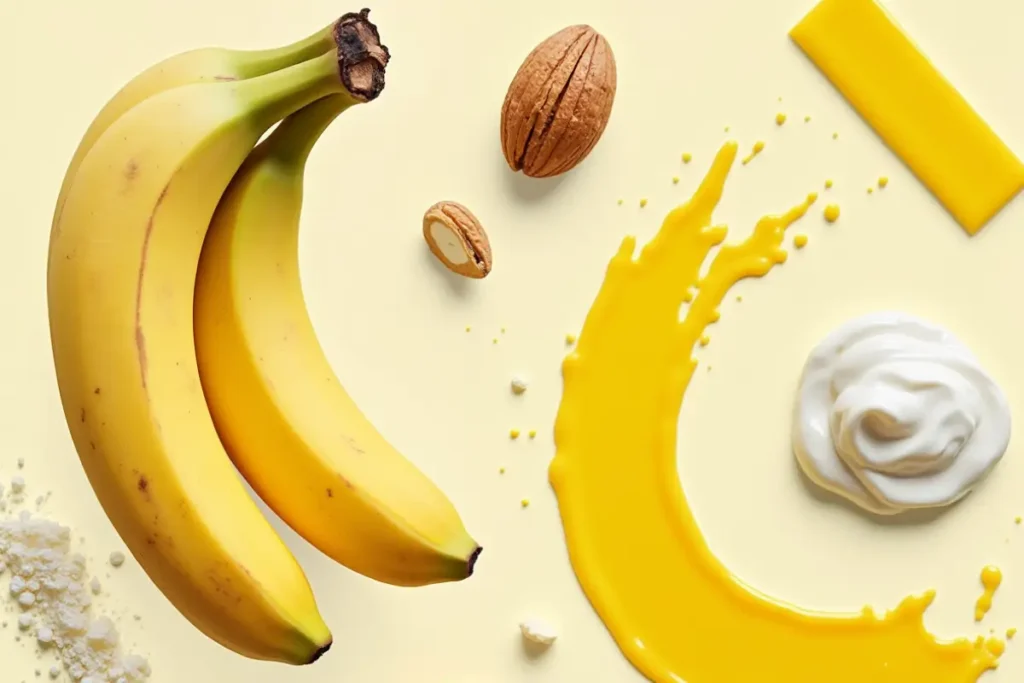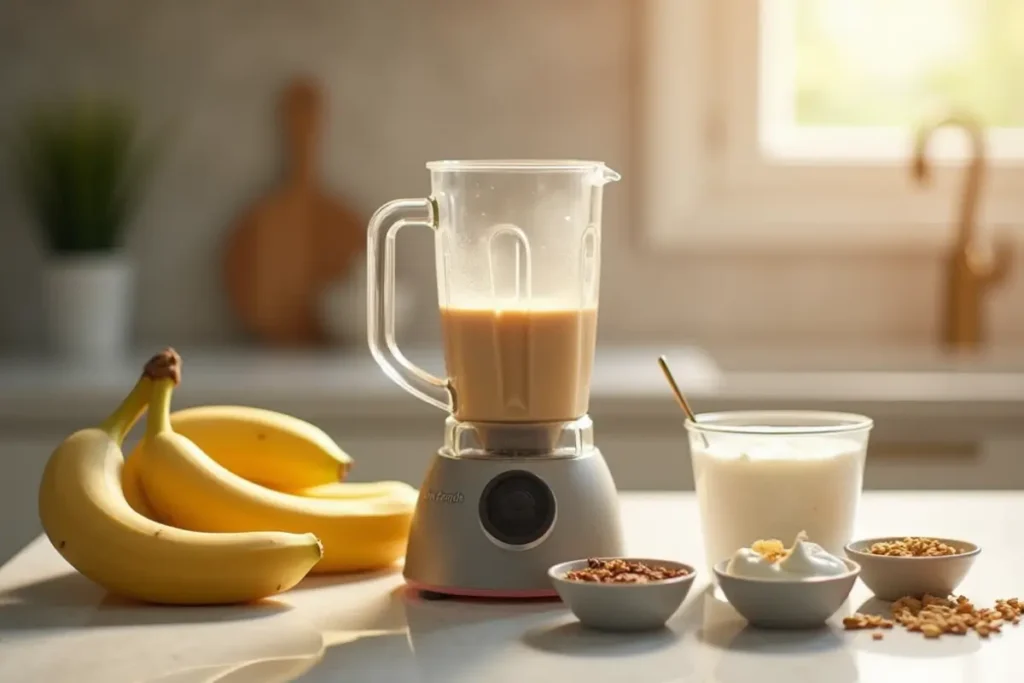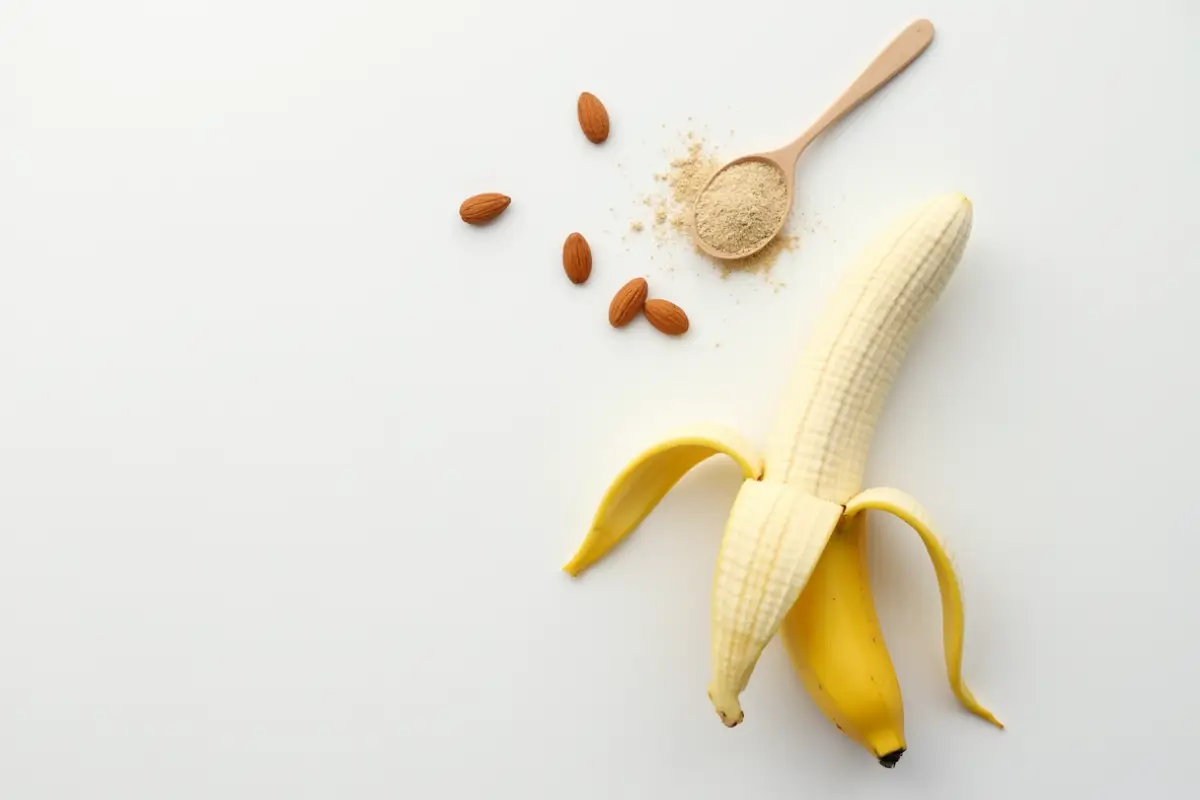We’ve all been there. For instance, you’re reaching for a banana, that convenient and naturally sweet snack, and a question pops into your mind: Is this actually helping me reach my health goals? It’s a thought many of us share, that lingering doubt: Are bananas high in protein? Therefore, let’s peel back the layers of this question and get right to the truth, shall we? You’ll probably be surprised to find that while bananas are indeed nutritious, they aren’t exactly the protein powerhouse you might have hoped for. This article will help you understand how bananas fit into your nutritional needs.
Understanding Protein and Its Importance
Protein—you’ve likely heard the term countless times. But what exactly is it, and why should you care? Think of protein as the building blocks of your body. Indeed, it’s a crucial macronutrient that plays numerous vital roles, from building and repairing tissues to producing enzymes and hormones. It’s essential for muscle growth, recovery after exercise, and keeping your immune system strong.
Furthermore, your daily protein needs vary depending on factors like your activity level, age, and overall health. Specifically, if you’re quite active or regularly engage in strenuous workouts, your requirement will naturally be higher than someone who leads a more sedentary lifestyle. Consequently, a balanced diet, one that includes diverse sources of protein, is key to ensuring your body has all the raw materials it needs to thrive. There are both ‘complete’ proteins, which contain all nine essential amino acids that your body can’t produce itself, and ‘incomplete’ proteins, which lack one or more. Therefore, the goal is to eat a variety of foods to obtain all of the necessary amino acids.
The Nutritional Profile of a Banana

Now, let’s take a closer look at what a banana brings to the nutritional table. We know it’s a popular, convenient snack, but what’s actually inside? Beyond its natural sweetness and satisfying texture, a medium-sized banana offers a mix of macronutrients: carbohydrates (mostly sugars), fiber, and a small amount of protein.
While not a significant source of protein, bananas do shine when it comes to vitamins and minerals. For example, they are a great source of potassium, an essential electrolyte that supports healthy blood pressure. Also, you will find a good amount of vitamin B6, important for brain function, and a decent dose of vitamin C, an antioxidant that helps protect your cells. Additionally, the fiber content aids digestion, promoting a healthy gut and keeping you feeling full.
Here’s a table showing the approximate nutritional value of a medium-sized banana:
Table: Nutritional Value of a Medium Banana (Approximate)
| Nutrient | Amount |
| Calories | 105 |
| Carbohydrates | 27 grams |
| Sugar | 14 grams |
| Fiber | 3 grams |
| Protein | 1.3 grams |
| Potassium | 422 milligrams |
| Vitamin B6 | 0.4 milligrams |
| Vitamin C | 10 milligrams |
As you can see, the protein content in a banana is relatively low compared to other nutrients, and therefore, it isn’t a primary source of protein.
Are Bananas a Good Source of Protein?
Now we come to the heart of the matter: Are bananas high in protein? The simple answer is no, not really. Indeed, while every little bit counts, relying on bananas as your main protein source would be like trying to fill a swimming pool with a teacup. The amount of protein in a banana is quite small, especially when compared to other protein-rich food options.
To put things into perspective, let’s compare the protein content of a banana with that of other common foods that are usually considered good sources of protein.
Table: Protein Content Comparison (per serving)
| Food | Protein (grams) |
| Medium Banana | 1.3 |
| 1 Cup Cooked Lentils | 18 |
| 1 Chicken Breast | 26 |
| 1 Egg | 6 |
| 1 Cup Cooked Chickpeas | 15 |
As you can observe, the protein levels in the other foods are significantly higher than what you will find in a banana. You should always try to ensure you have a balanced diet that meets your protein requirements to support your health. Therefore, while a banana has great benefits and is very healthy, it shouldn’t be your go-to source of protein.
Nonetheless, while bananas may not be a protein powerhouse, it’s important to remember that they are still a healthy and nutritious option. Bananas provide you with essential vitamins, minerals, fiber, and carbohydrates for quick energy – it’s about understanding their place in a balanced and diverse diet.
Maximizing Protein Intake While Enjoying Bananas
So, you now know that you shouldn’t primarily rely on bananas for your protein needs. However, what if you really love bananas and you would like to still include them in your diet, and at the same time you still need a protein boost? Well, you’re in luck! It’s all about combining bananas with other protein-rich foods to create meals and snacks that are both satisfying and packed with protein.
Here are some great and tasty ways you can enjoy bananas while keeping up with your protein intake.
- For Example: Banana and Yogurt Smoothie: Blend a banana with a cup of Greek yogurt. Greek yogurt is packed with protein and is a great way to keep you feeling full.
- Alternatively, try Banana with Nut Butter: Spread a couple of tablespoons of your favorite nut butter onto a banana. You’ll add good fats, protein, and flavor.
- Also, consider Oatmeal with Sliced Banana and Nuts: Prepare your morning oatmeal, and top it off with slices of banana and a handful of nuts, such as almonds or walnuts. These add a good amount of protein and fiber to your breakfast.
In addition, there are tons of other ways you can incorporate bananas with protein-rich foods, and they usually are quick to prepare and a healthy option to keep you going. Don’t be afraid to be creative and find new exciting ways to prepare your favorite meals.
Quick Recipe Ideas with Bananas and Protein

Here are two very quick and tasty recipes that you can try. These recipes not only combine the great flavor of bananas but also are packed with good amounts of protein that will keep you feeling full and satisfied.
Banana Protein Smoothie
This is a great option for a breakfast, post-workout, or a snack in between. It’s incredibly easy and fast to prepare.
- Ingredients Table:
| Ingredients | Quantity |
| Banana | 1 Medium |
| Plain Greek Yogurt | 1 Cup |
| Milk (or plant milk) | 1/2 Cup |
| Chia Seeds | 1 Tablespoon |
| Nut butter | 1 Tablespoon |
| Protein Powder (Optional) | 1 Scoop |
- Instructions
- First, combine all ingredients in a blender.
- Next, blend until smooth and creamy, adjust the liquid to reach your desired consistency.
- Finally, pour into a glass and enjoy this yummy and healthy drink.
Banana and Nut Butter Snack
This snack is as simple as it gets. This is a great option when you are on the go, and it’s great for adults and kids alike.
- Ingredients Table:
| Ingredients | Quantity |
| Banana | 1 Medium |
| Nut butter | 2 Tablespoons |
- Instructions
- First, slice the banana into coins or rounds.
- Next, spread a generous amount of nut butter onto each slice.
- You can also make little banana sandwiches by stacking two slices together with the nut butter in the middle.
- Then, enjoy your healthy and energizing snack.
Best Side Pairings for Bananas
Nut Butter Pairings
Bananas pair wonderfully with nut butters, creating a delicious and protein-rich snack. For instance:
- Is Peanut Butter High in Protein?: Combining bananas with peanut butter not only tastes amazing but also adds a boost of nutrition, making it an excellent choice for a quick and healthy snack.
- Additionally, almond butter and cashew butter are fantastic alternatives. These options not only offer variety but also introduce unique flavors and textures to complement bananas.
Breakfast Classics
Bananas are a breakfast staple, and for good reason. They seamlessly complement various breakfast dishes:
- Is Oatmeal High in Protein?: For example, topping oatmeal with banana slices provides a hearty and satisfying start to the day.
- Furthermore, bananas work well with Homemade Pancakes. You can add them to the batter for natural sweetness or use them as a topping for an extra layer of flavor.
Sweet and Decadent Pairings
If you’re craving something indulgent, bananas can significantly enhance many dessert recipes.
- For instance, try incorporating bananas into desserts like the Brookie Recipe for a delightful twist on a classic treat.
- Alternatively, bananas pair beautifully with chocolate spreads or a drizzle of melted dark chocolate, offering an easy yet luxurious dessert idea that’s perfect for any occasion.
Protein-Boosted Meals
For those aiming to include bananas in a nutritious meal, there are plenty of high-protein options to consider:
- High Protein Breakfast: One great idea is to pair bananas with yogurt and granola, creating a balanced and energizing start to the morning.
- Moreover, you can blend bananas into smoothies with whey protein and almond milk for a refreshing, protein-packed drink that is both delicious and satisfying.
FAQ: Addressing Common Queries
You probably have some questions in your mind right now, and that is perfectly fine! In this section, you will find the most commonly asked questions about bananas and their protein content.
Is the protein in bananas complete?
The protein in bananas is considered incomplete, meaning it doesn’t contain all nine essential amino acids that your body needs. For this reason, you should combine bananas with other protein sources in your diet to ensure you’re getting a balanced intake of amino acids.
Can I build muscle with bananas?
Although bananas provide you with carbohydrates for energy, their low protein content makes them an insufficient source for building muscle. Therefore, to effectively build muscle, you should focus on consuming adequate amounts of protein from diverse sources, like fish, chicken, legumes, or protein supplements, depending on your individual dietary needs.
Are bananas high in protein compared to other fruits?
Actually, no, bananas are not high in protein compared to other fruits. Most fruits are primarily sources of carbohydrates, vitamins, minerals and fiber, and consequently, they don’t contain a lot of protein. There is a good amount of fiber and potassium in bananas, but for a higher protein intake, look to foods in other food groups such as fish, legumes, or dairy.
How many bananas can I eat a day?
There isn’t a specific rule on how many bananas you can eat in a day, and it is based on the individual’s dietary needs and health conditions. However, the general recommendation is to include a variety of fruits and vegetables in your daily diet. Hence, as long as you are not overdoing it, it should be perfectly safe to enjoy one or two bananas per day.
Is it better to consume bananas before or after a workout?
Both are good options, it depends on your needs. Bananas are a great source of carbohydrates, making them a good choice for a pre-workout snack to provide you with quick energy. Post-workout, the carbohydrates can help replenish glycogen stores, while the potassium can help with muscle recovery.
Conclusion
So, let’s wrap things up. To summarize, while bananas are a delicious, convenient and portable fruit, you now know that you shouldn’t rely on them as a primary source of protein. They are packed with carbohydrates, vitamins, minerals, and fiber, all of which contribute to a healthy lifestyle.
Moreover, remember, your body thrives on balanced nutrition. You should not be afraid to enjoy bananas as part of a healthy and varied diet. However, at the same time you should remember to incorporate a variety of protein sources such as legumes, poultry, fish, eggs, or nuts to meet your daily protein needs.
In conclusion, don’t let the question “Are bananas high in protein?” deter you from enjoying this wonderful fruit. It’s all about making informed choices and understanding the nutritional profile of the food you are eating. Embrace a diverse dietary approach. There’s no one single food to rule them all, therefore, focus on variety and the right balance!
Ultimately, you are the key decision maker when it comes to your health, so it’s up to you to decide what fits best with your needs and lifestyle.
Now that you are armed with this knowledge, what are you going to do with it? How will you incorporate bananas into your daily diet? Share your ideas in the comments below and let’s keep the discussion going.

